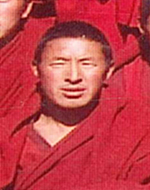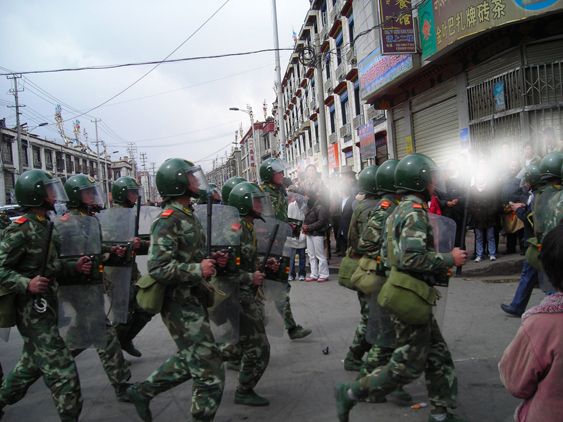

"The Chinese government has leveled false allegations against the monks of Kirti Monastery for leaking state secrets to the outside world... I do not want to live under Chinese oppression even for another minute, let alone a whole day." Suicide note of 32-year-old Lobsang Jinpa, a monk from Kirti Monastery in Eastern Tibet, who hung himself on March 27th.
Tenzin Norgay has been following reports of human rights violations coming out of Tibet for over six years now. The hardest part, he says, is the unrealistic hopes of those who bring them to him. "Everybody expects things to change overnight." Thirty-year-old Norgay is one of twelve staff at the Tibetan Center for Human Rights & Democracy (TCHRD) in Dharamsala, India -- a modest but motivated NGO dedicated to monitoring the human rights of a place that's arguably more controlled than anywhere on earth.
Mostly, the information the Center receives comes through a third party, often Tibetans in exile. Lately, however, the reports that were flooding the office in the Spring have been reduced to a trickle as a result of China's current security clampdown in Tibet.
A photo received by TCHRD taken on the streets of Lhasa shows Chinese security forces responding to the protests of March 14, 2008
If getting human rights information out of Tibet is a challenge in itself, the staff at TCHRD face an even greater challenge -- verifying the reports they receive. "They can prove to be just rumor, and we have to be very, very careful in digging out what the real situation is," says Norgay. I ask what they do if they can't authenticate some information that seems vitally important. "If our sources cannot corroborate the story, then we drop it. It's very difficult."
The logistical issues are closely tied to ethical ones. The Center's staff are in possession of a number of photos that they're unable to release because there's not enough supporting information. But even if they are able to authenticate the photo, they might still choose not to release it. "All of us know that pictures like these can land people in trouble." For a story or photograph to be taken seriously, it needs to be backed up with details such as name, age, and place. But here's the rub. Such details put people in danger.
Occasionally, the Center even finds its work at odds with that of reporters who need names and facts to authenticate their own stories. "We do not believe in the breaking news culture," says Norgay. "It can lead to the overstepping of human rights ethics to some degree."
As he explains, "China does not regard the reporting of human rights violations to the outside world as reporting human rights violations. It is viewed as leaking state secrets. The authorities do not look upon these people as human rights activists or human rights defenders. They can even be labeled as terrorists. It's a very heavy, very tense thing for us. We don't want to land anyone in prison." The staff of TCHRD is acutely aware of what this means. Two of them, Dawa Tsering and Jampa Monlam, are former political prisoners themselves, who were incarcerated for four and five years respectively in Lhasa's Drapchi prison -- a place that's synonymous with torture.
No matter how careful they are, it's inevitable that occasionally one or other of their sources in Tibet will be discovered by China's security forces that exercise wide-ranging control and surveillance of personal communications such as phones and email. Norgay's voice lowers as he responds to my question about how the office copes with this. "Whenever someone is arrested and thrown into jail for their bravery in telling the truth to the outside world, we feel a grave loss."
"We double-check with them again, 'Do you really want us to publish this?' If they say 'yes' then we have no option. They completely understand the risk they're taking."
But sometimes people insist that the Center publish what they send out. "They say, very courageously, 'Do not worry about us. We are ready to sacrifice ourselves.' If they say this with so much heart and strong will, then we double-check with them again, 'Do you really want us to publish this?' If they say 'yes' then we have no option. They completely understand the risk they're taking."
I guessed that Norgay must have his cell phone on all the time. "Twenty-four hours. Anyone can wake me up, anytime they like."
It's the only time during our whole conversation that he smiles.
Rebecca Novick is a writer and the Executive Producer of The Tibet Connection radio program. She is currently based in Dharamsala, India.

